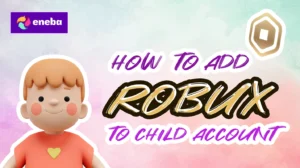How Much Does PSA Grading Cost in 2025? Your Guide to Grading Pokémon Cards
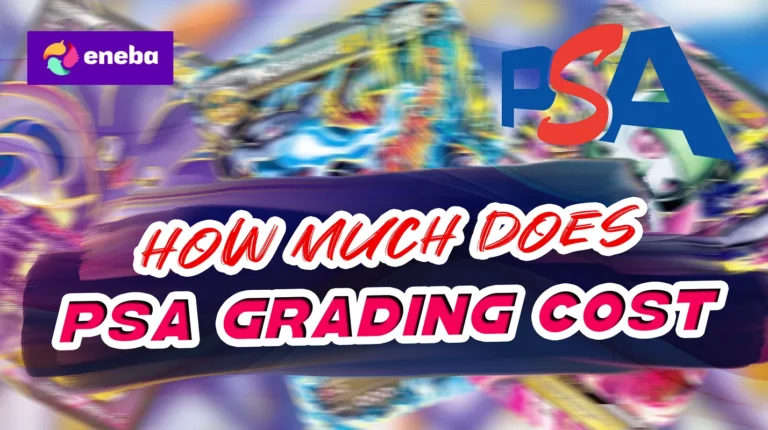
So, how much does PSA grading cost? This is a question that has probably crossed your mind if you own expensive Pokémon cards or want to protect your collection. I get it. Getting your cards professionally graded can boost their value and protect them for years. But grading costs some money, and you need to understand the factors that determine how much PSA grading will cost you.
In this guide, I’ll walk you through everything you need to know about PSA grading costs, specifically for Pokémon cards. You’ll learn what affects pricing, how to get Pokémon cards graded, and whether the investment is worth it. By the end, you’ll have a clear picture of what to expect when you decide to grade your cards.
Jump to:
What is PSA Grading? A Quick Overview
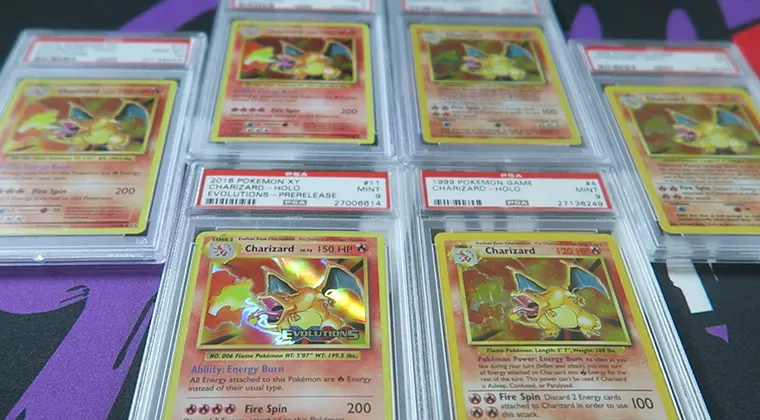
PSA stands for Professional Sports Authenticator, and it’s one of the most trusted bodies in card grading. People send their Pokémon cards to PSA, their team of experts examines each card and assigns it a grade based on its condition. This grade tells collectors and buyers the quality level of the card.
PSA uses a 10-point grading scale. PSA 10 is assigned to cards that are essentially in perfect condition, while lower grades indicate lower quality. The scale considers factors like centering, corner sharpness, edge quality, and surface condition.
The grading process is important, especially if you’re researching Pokémon cards worth money in your collection. A PSA 10 Charizard can sell for thousands more than the same card in raw, ungraded condition. PSA encases graded cards in tamper-proof plastic holders with labels showing the grade, certification number, and card details. This protects them and makes them more trustworthy to buyers.
The table below shows the PSA grading scale in detail:
| Grade | Description | Value Impact | Example of Condition |
|---|---|---|---|
| PSA 10 (Gem Mint) | Perfect condition with no visible flaws | Highest value | No creases, scratches, or discoloration |
| PSA 9 (Mint) | Near-perfect condition with very minor flaws | High value | Slightly off-center or minor imperfections visible under magnification |
| PSA 8 (Near Mint – Mint) | Slight wear, may have small surface imperfections | Medium-high value | Light scratches or minor centering issues |
| PSA 7 (Near Mint) | Visible wear but still well-maintained | Medium value | Light bends or slightly rounded corners |
| PSA 6 (Excellent – Mint) | Noticeable wear but no severe damage | Lower value | Slight creases, discoloration, or centering issues |
| PSA 5 (Excellent) | Considerable wear, still structurally intact | Lower-medium value | Major creases or visible staining |
| PSA 4 (Very Good – Excellent) | Significant wear and tear | Lower value | Multiple creases, noticeable wear on edges |
| PSA 3 (Good) | Heavy wear, visible damage | Low value | Bent corners, heavy scratches, or surface loss |
| PSA 2 (Good – Fair) | Severe wear, significant damage | Low value | Extensive creases, major surface damage |
| PSA 1 (Poor) | Very poor condition with significant damage | Lowest value | Tears, missing pieces, severe damage |
How Much Does PSA Grading Cost for Pokémon Cards?
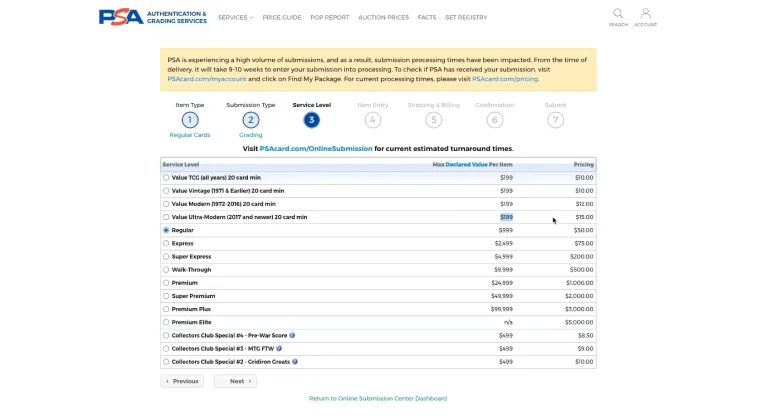
PSA grading costs range from about $19 to over $10,000 per card, depending on the service level you choose and how quickly you need your cards back. The pricing can seem confusing at first because PSA offers various service tiers, each with different turnaround times and declared value limits. The declared value is what you estimate your card will be worth after grading, and PSA uses this for insurance purposes. Before submitting cards for grading, you should know how to check Pokémon card value to determine if grading makes financial sense.
For a clearer view of how much it costs to grade a Pokémon card, the table below breaks down the cost and details of each pricing tier as of November 2025:
| Tier | Price per card | Turnaround time | Max Insured Value |
|---|---|---|---|
| Trading Card Game Bulk | $18.99 | 65 business days | $300 |
| Value Bulk | $21.99 | 65 business days | $500 |
| Value | $27.99 | 45 business days | $500 |
| Value Plus | $44.99 | 25 business days | $500 |
| Value Max | $59.99 | 20 business days | $1,000 |
| Regular | $74.99 | 15 business days | $1,500 |
| Express | $149.00 | 10 business days | $2,500 |
| Super Express | $299.00 | 5 business days | $5,000 |
| Walk-Through | $599.00 | 5 business days | $10,000 |
| Premium 1 | $999.00 | 5 business days | $25,000 or less |
| Premium 2 | $1,999.00 | 5 business days | $50,000 or less |
| Premium 3 | $2,999.00 | 5 business days | $100,000 or less |
| Premium 5 | $4,999.00 | 5 business days | $250,000 or less |
| Premium 10 | $9,999.00 | 5 business days | $250,001 or higher |
The Trading Card Game Bulk, Value Bulk, Value, Value Plus, and Value Max are the most popular options for Pokémon collectors. However, the Trading Card Game Bulk and Value Bulk options require a minimum of 20 cards and a PSA Collectors Club membership.
How to Get Your Pokémon Cards Graded with PSA?
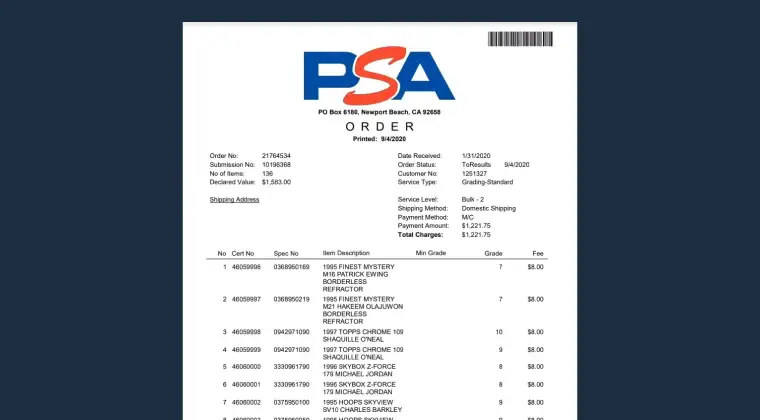
If you’re wondering how to grade Pokémon cards, the process is actually straightforward. You can submit directly through PSA’s website or use authorized dealers like Concept Grading and GameStop.
If you submit directly, you have full control over the process, and you can choose exactly which service level fits your needs. On the other hand, going through dealers can make things simpler for you, especially if you’re a first-time grader who wants guidance.
Here is a step-by-step guide on how to get Pokémon cards graded.
Step 1: Create an Account on PSA’s Website or Trusted Dealers
You can create an account on PSA’s website to begin the submission process. The registration requires basic information like your email, name, and address. Once your account is set up, you can start building submissions and tracking your cards.
Alternatively, you can work with authorized online dealers partnering with PSA. This option means you don’t have to fill out submission forms, meet card minimums, or ship directly to PSA.
Step 2: Select the Right Grading Service for Your Pokémon Cards
The service level you’ll choose depends on three things: your budget, your card’s expected value after grading, and how quickly you need results.
Trading Card Game Bulk ($18.99 per card) and Value Bulk ($21.99 per card) offer the best prices but require 20 cards minimum and come with longer turnaround times. Other options, like Value Plus, Value Max, Regular, Express, Super Express, and Walk-Through, offer faster turnaround times at higher prices.
How much it costs to get a card graded changes based on the card’s potential worth. For common or moderately valuable cards, stick with Value Bulk or Value services. For chase cards that could grade high and sell for hundreds or thousands, consider Regular or Express for quicker turnaround. Many collectors also consider which cards to grade based on current market trends. This way, you know the best Pokémon packs to buy for profit.
If you don’t mind longer turnaround times, you can choose any of the Value grading tiers. But if you’re grading cards to flip quickly or need them by a specific date, the tiers with higher costs, like Super Express or Walk-Through, may be the best option.
Step 3: Prepare Your Pokémon Cards for Grading
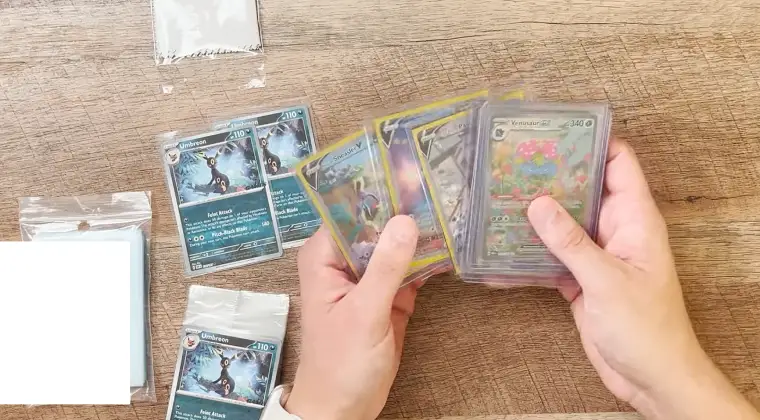
It is important that you protect your card properly before shipping, as this can affect grading. You need penny sleeves and card savers (not toploaders) for each card. PSA specifically requests card savers because they’re easier to work with during the grading process.
Handle your cards carefully when sleeving them. I always wash my hands first and work on a clean surface to avoid getting fingerprints or dust on the cards. Even a tiny fingerprint can sometimes affect surface grading, especially on holographic cards.
Pack your card savers tightly in your shipping box with cardboard dividers to prevent movement during transit. Add bubble wrap around the card bundle for extra protection. The last thing you want is for cards to arrive damaged because of poor packaging.
Step 4: Submit Your Cards and Pay for Grading
Fill out PSA’s online submission form with details about each card, including year, set, card number, and player or character name. Getting these details right matters because it helps PSA identify your cards correctly in their system.
How much it costs to get Pokémon cards graded becomes clear when you calculate the total. Add up your per-card grading fees, membership costs if applicable, and shipping expenses. Most collectors ship with insurance to protect against loss or damage in transit.
You can pay through your PSA account using credit cards or other accepted methods. For GameStop submissions, Pokémon cards valued at $200 or less cost $15.99 per card plus a flat shipping fee (around $4.99 to $9,99), and you can use trade credits or coupons to reduce costs.
Step 5: Wait for PSA to Grade Your Cards
Processing times depend on your chosen service level and range from 5 business days for premium services to 65 business days for Value submissions. Note that these are estimates, not guarantees, and turnaround times can stretch longer during busy periods.
You can track your submission status through your PSA account. PSA provides email updates as your cards move through different stages of the grading process. I check my account every few days when I have submissions in progress, just to see where they are in the queue.
Patience pays off here. PSA’s graders examine thousands of cards daily, and they take their time to ensure accurate, consistent grading. Rushing the process wouldn’t help anyone, so I’ve learned to submit cards and then forget about them until the completion email arrives.
Where to Get Pokémon Cards Graded Near Me?
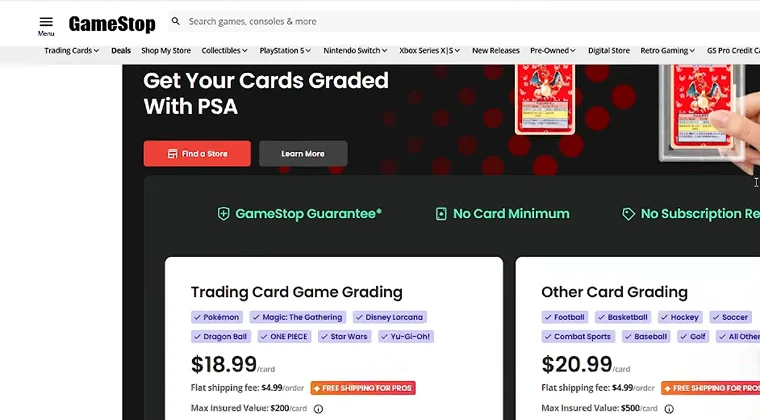
I like to find where to get Pokémon cards graded near me when I don’t want to deal with the PSA process myself. I’ve found platforms like GameStop and Concept Grading useful for this. So, if you prefer in-person interactions or want to avoid shipping, this option should be perfect for you.
You can also try local card shops that are authorized PSA dealers. These shops act as middlemen, collect your cards, handle paperwork, and ship them to PSA in bulk. They charge service fees that typically range from $3 to $10 per card on top of PSA’s base grading fees.
PSA also offers on-site grading at major events like The National Sports Card Convention, with same-day service available for $150 per card. Card shows and Pokémon tournaments sometimes have PSA representatives offering similar services. The convenience of getting cards back within hours comes at a premium price.
Mailing your cards directly to PSA remains the most cost-effective method. The process isn’t difficult once you’ve done it once, and you save the dealer service fees. But for first-timers or those grading just one or two special cards, paying a local shop’s fee for their expertise makes sense.
How Long Does PSA Grading Take?
Typical turnaround times for Pokémon PSA grading range from 65 business days for Value services down to 5 business days for Premium services. Business days exclude weekends and holidays, so you need to account for that when planning. A 65-business-day estimate translates to roughly four months of calendar time.
PSA processed over 15 million items in 2024, which makes it the most popular grading service by volume. This large submission volume means turnaround times can fluctuate. During peak seasons like after new Pokémon set releases or around the holidays, processing slows down as PSA receives more submissions than usual.
Several factors impact how long your specific submission takes. PSA’s submission volume, capacity, and unforeseen circumstances all affect turnaround times. If your cards need additional research because they’re rare or unusual, that adds time, too.
Is PSA Grading Worth the Cost?

The answer depends on your goals and which cards you’re grading. Graded cards can increase significantly in value, with some cards seeing increases of 2,400% or more when they achieve a PSA 10 grade compared to raw near-mint copies. Those kinds of gains make grading worthwhile for valuable cards.
Grading provides authentication, which protects buyers and increases trust. The sealed holder also preserves the condition indefinitely. For rare vintage cards or modern chase cards like alternate arts and secret rares, PSA grading almost always makes financial sense.
The math changes for common cards or those likely to grade PSA 7 or below. If you’re wondering, “How much is it to grade a Pokémon card?” It starts at $18.99 for bulk submissions, but if your card only gains $10 to $15 in value after grading, you’re losing money when you factor in shipping and insurance.
What I do is research sold listings on eBay and TCGPlayer before grading to compare raw prices versus graded prices at different grades. For instance, if a PSA 9 only sells for $20 more than raw, but grading costs $30 all-in, I’ll skip it. The cards that make sense to grade are those where a good grade adds value.
Once you have graded cards, you’ll want to know the best place to sell graded Pokémon cards. Online marketplaces like eBay, PWCC Marketplace, and Goldin Auctions typically offer the best prices for PSA-graded cards, as collectors trust these platforms and actively seek authenticated cards. Meanwhile, if you have ungraded cards, the best place to sell bulk Pokémon cards is typically through local card shops or bulk buyers who can process large quantities efficiently.
Alternatives to PSA Grading
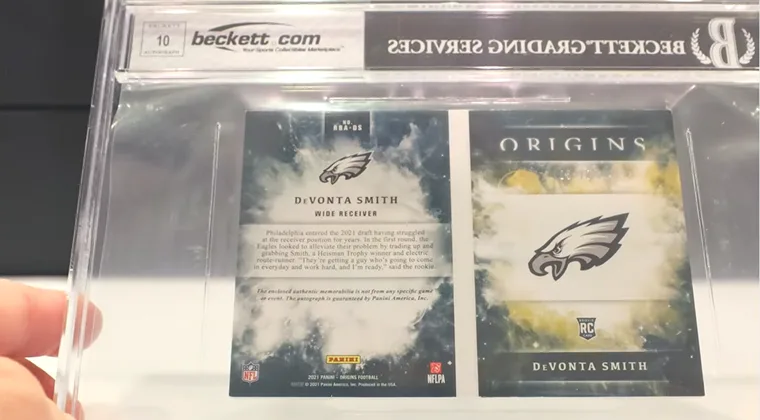
PSA isn’t your only option. Two major alternatives include Beckett Grading Services (BGS) and Certified Guaranty Company (CGC), each with its own pricing structures and advantages.
BGS’s basic grading starts at $14.95 per card for a 45-plus business day turnaround, with an additional $3 for subgrades. BGS’s subgrade system shows individual scores for centering, corners, edges, and surface, giving you more detail about why your card received its grade.
CGC often offers lower costs than PSA, with bulk rates starting around $12 per card. CGC is newer to the Pokémon market, and this means its graded cards sometimes sell for less than PSA equivalents, though that gap has been closing.
However, collectors looking for rare Pokémon cards for sale often prefer PSA-graded cards because of the service’s reputation and market recognition.
Let’s compare PSA, BGS, and CGC in the table below to put things better into perspective:
| Grading Service | Pricing | Service Levels | Turnaround Time | Popular for | Pros | Cons |
|---|---|---|---|---|---|---|
| PSA (Professional Sports Authenticator) | $10 – $100+ per card | Economy, Regular, Express, Premium | 1-6 weeks (depending on service level) | Pokémon, sports cards, Magic: The Gathering | – Widely recognized- High resale value- Trusted by collectors | – Higher costs for faster services- No encapsulation for lower-value cards |
| BGS (Beckett Grading Services) | $15 – $50 per card | Standard, Express, Super Express | 2-8 weeks | Sports cards, Magic: The Gathering | – BGS 10 “Black Label” is highly coveted- Offers sub-grades | – Slightly lower resale value than PSA- Pricier options |
| CGC (Certified Guaranty Company) | $12 – $25 per card | Economy, Standard, Express | 2-6 weeks | Comics, trading cards (including Pokémon) | – Lower costs- Growing reputation- Strong in comics | – Not as established as PSA for Pokémon cards- Less resale value than PSA |
For modern Pokémon cards that I’m grading purely for personal collection rather than resale, I sometimes use CGC to save money. But for vintage cards or anything I plan to sell, PSA remains my first choice because of their market dominance and higher resale values.
Ready to Protect Your Pokémon Collection?
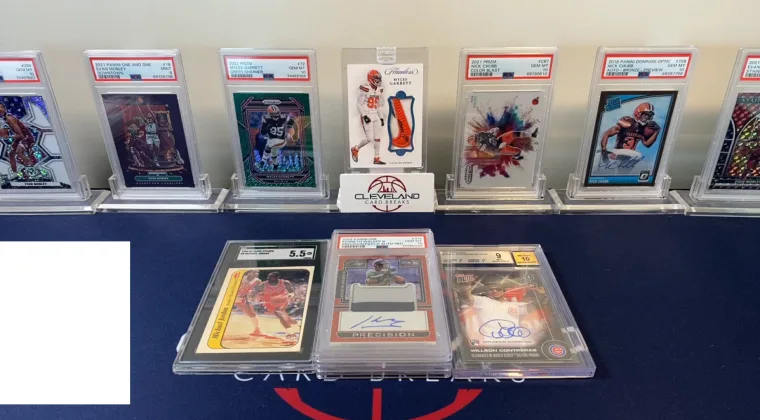
You need to understand PSA Pokémon grading cost and the grading process if you want to become a collector or just to understand the long-term value of your Pokémon cards. You now know what each tier offers and what to expect in terms of pricing and turnaround times.
The PSA grading cost Pokémon collectors pay is an investment in authentication, protection, and potential value increase. Not every card needs grading, but for those special pulls or vintage treasures, PSA grading offers peace of mind and market credibility that raw cards simply can’t match.
You need to understand PSA Pokémon grading cost and the grading process if you want to become a collector or just to understand the long-term value of your Pokémon cards. You now know what each tier offers and what to expect in terms of pricing and turnaround times.
Whether you’re trying to figure out where to sell Pokémon cards after grading or simply want to preserve your collection’s condition, PSA grading provides a standardized solution recognized worldwide.
So, how much does PSA grading cost? The PSA grading cost Pokémon collectors pay is an investment in authentication, protection, and potential value increase. Not every card needs grading, but for those special pulls or vintage treasures, PSA grading offers peace of mind and market credibility that raw cards simply can’t match.
FAQs
PSA grading costs between $18.99 and $9,999 per card, depending on the service level and turnaround time you choose. Higher-value cards require more expensive service tiers with different declared value limits.
PSA grading is worth it for valuable, rare, or vintage Pokémon cards where professional authentication and a high grade increase market value by a lot of dollars. Cards can see value increases of hundreds or even thousands of percent when they achieve high grades like PSA 10.
PSA grading turnaround times range from 5 business days for Premium service to 65 business days for Value submissions, though these are estimates and actual times may vary. Submission volume and seasonal demand affect processing speeds.
You can submit cards through certain service levels without a PSA Collectors Club membership, though membership is required for Trading Card Game Bulk and Value Bulk submissions.
PSA authenticates cards before grading and will not grade counterfeit cards. Authentication is part of the grading process, so if PSA has graded your card, it’s genuine.
The PSA grading scale runs from 1 to 10, with PSA 10 representing Gem Mint condition and PSA 1 representing Poor condition. The scale evaluates centering, corners, edges, and surface quality to determine each card’s grade.
The cost depends on your chosen service level, desired turnaround time, and declared card value after grading. Cards with higher declared values require more expensive service tiers, and faster turnaround times cost significantly more.
PSA charges $100 or more per card only for services like Super Express, Walk-Through, or any of the five Premium tiers. These options offer very fast turnaround times for high-value cards. Most Pokémon collectors use Value, Value Bulk, or Value Plus services that cost between $21.99 and $44.99 per card.
GameStop charges $15.99 per Pokémon card with a declared value of $200 or less, plus a flat shipping fee of around $4.99 to $9.99



